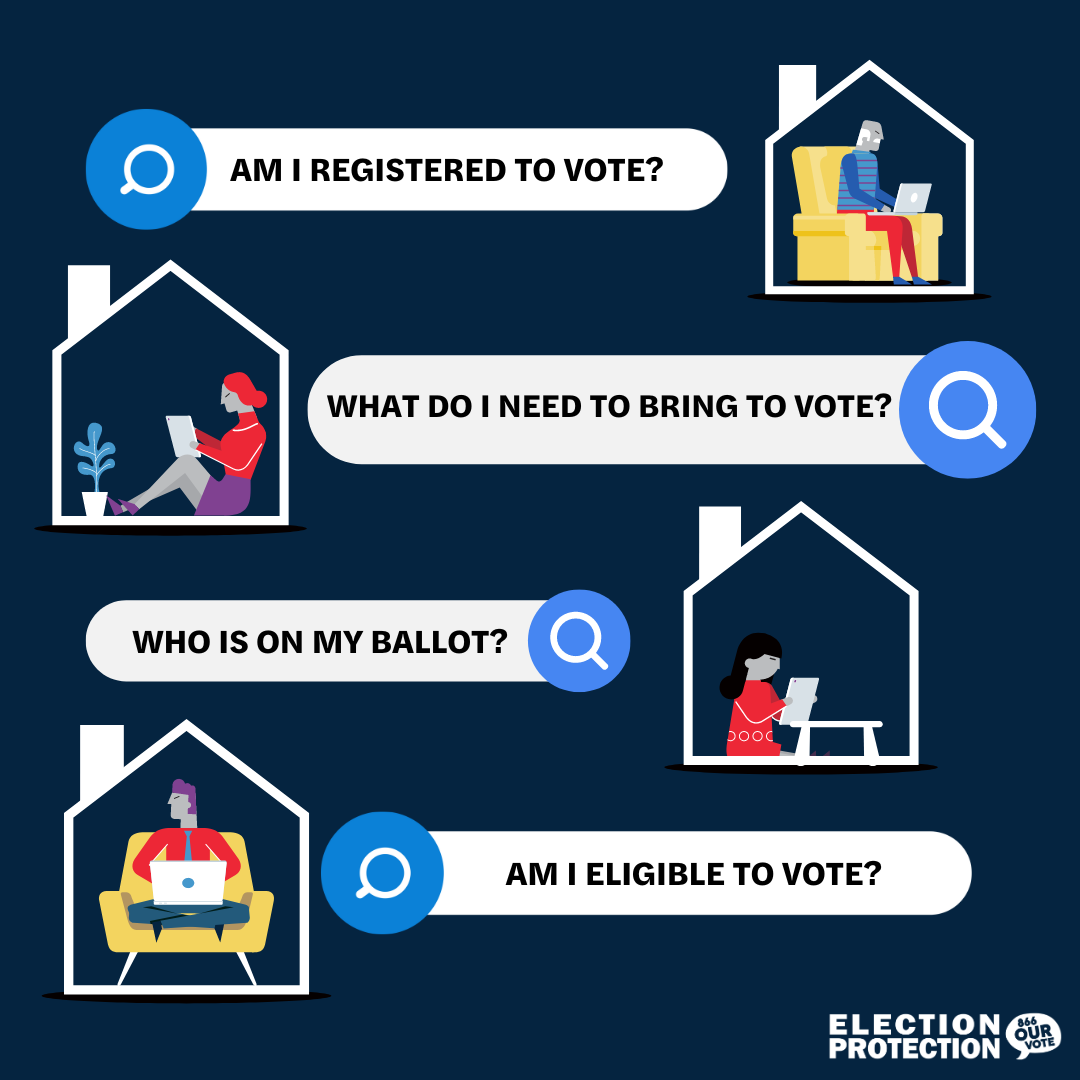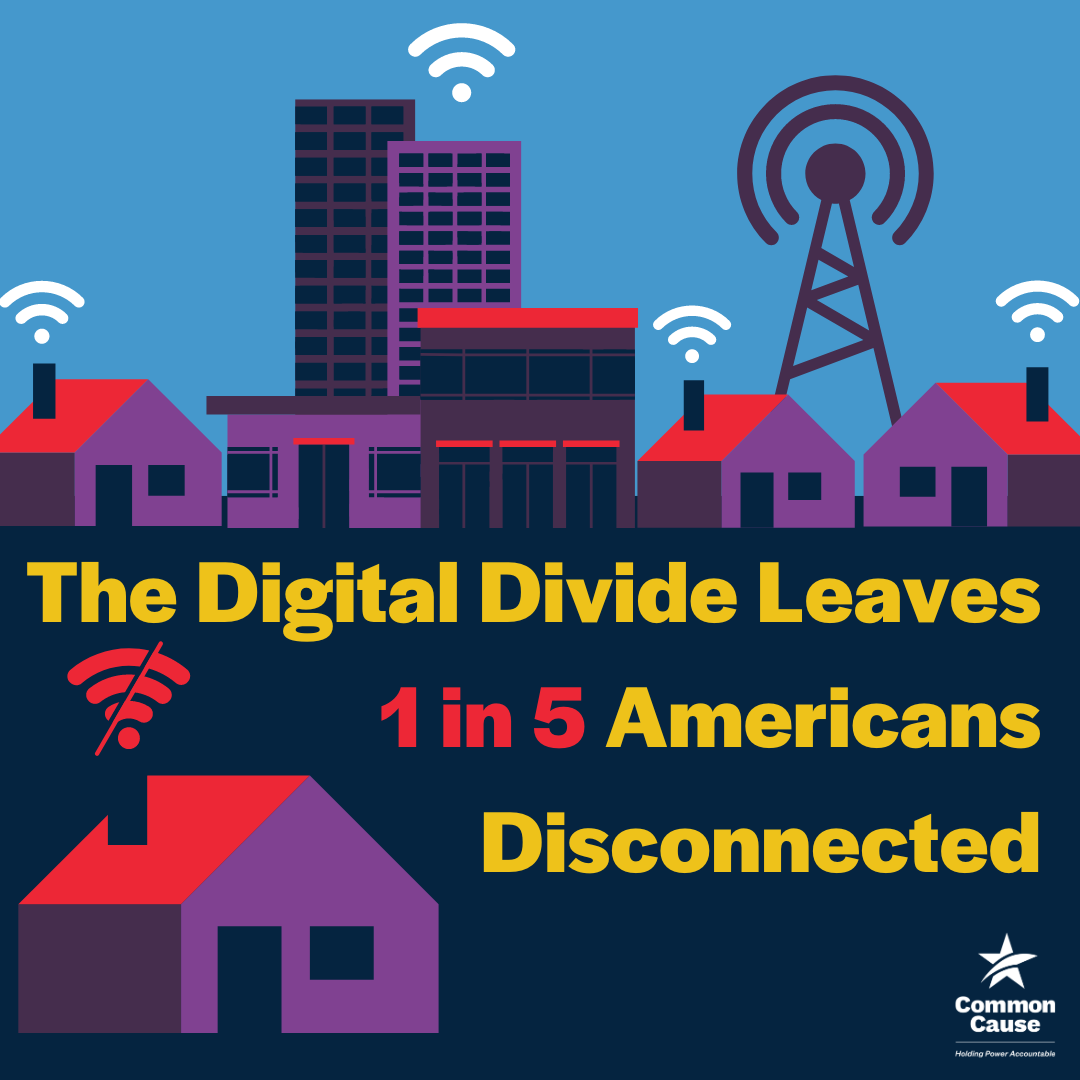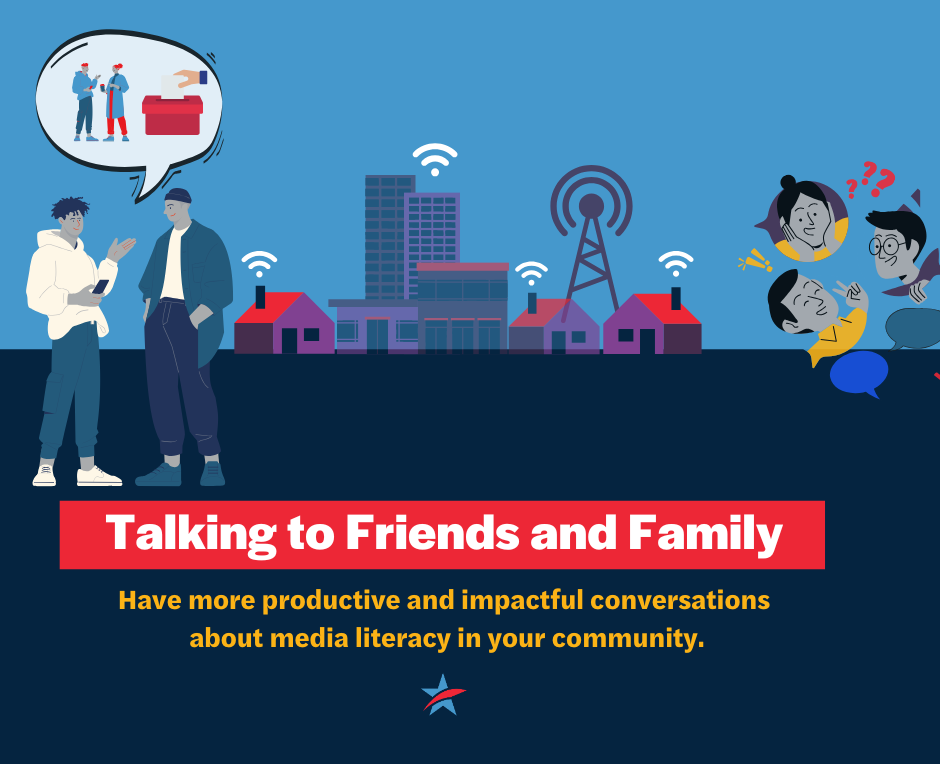Indiana Litigation
Campaign
Internet Access For All
The Digital Divide is the Civil Rights Issue of Our Time

Why is Internet Access a Democracy Issue?
In the modern age, the internet is necessary for access to education, health care, and connection to friends and family. The past decade has also confirmed that internet access is crucial to actively participating in our modern democracy. Our phones, tablets, and laptops have become tools for:
- Checking voter registration status online
- Accessing voting instructions, wait times, and deadlines
- Looking up information about candidates/ ballot issues
- Sharing election information with community members

Why is the Digital Divide a problem?
1 in 5 Americans cannot afford the internet connection they need to participate as equals in our modern society.
This Digital Divide impacts the Black, Latine, Indigenous, Older, Low Income, and Disabled communities the most. These communities often exist in Information gaps making them vulnerable to mis and disinformation about our democratic process.
The Digital Divide by the Numbers
80%
of white americans have access to home internet
https://www.pewresearch.org/internet/2024/01/31/americans-use-of-mobile-technology-and-home-broadband/
68%
of Black americans have access to home internet
https://www.pewresearch.org/internet/2024/01/31/americans-use-of-mobile-technology-and-home-broadband/
86%
Of Suburban homes have access to home internet
https://www.pewresearch.org/internet/2024/01/31/americans-use-of-mobile-technology-and-home-broadband/
73%
Of Rural Homes have access to home internet
https://www.pewresearch.org/internet/2024/01/31/americans-use-of-mobile-technology-and-home-broadband/
65%
of Tribal Rural lands have access to home internet
https://www.bia.gov/service/infrastructure/expanding-broadband-access
41%
of Americans report using the internet almost constantly
https://www.pewresearch.org/internet/2024/01/31/americans-use-of-mobile-technology-and-home-broadband/
What is Internet like where you live?
We are looking for stories from everyday Americans on media issues that impact our lives, our access to reliable information, and participation in our democracy.
First look at what broadband looks like in your area and compare to other areas.
Second- Submit a challenge if the FCC map is inaccurate
Last- Tell us more about how internet access impacts your daily life
What We’re Doing
Litigation
LWV Utah v. Utah State Legislature Amicus Brief
Michigan Litigation
Agee v. Benson Amicus Brief
Texas Litigation
Fair Maps Texas Action Committee v. Abbott
Pennsylvania Litigation
Carter/Gressman v. Chapman
Take Action
Event
Have an Election Conversation
You are not alone! Bad Actors divide and distract voters across the country for their own personal gain. The good news is that we can ALL make a big difference in our communities.
Use our tools and resources designed to empower trusted messengers as we navigate conversations about media literacy and election lies.

Your financial support helps us make an impact by holding power accountable and strengthening democracy.
Related Resources
Guide
Media Literacy Skill: Lateral Searching
Lateral reading or lateral searching is a strategy that helps us to determine for ourselves who is a credible source of information.
Position Paper

